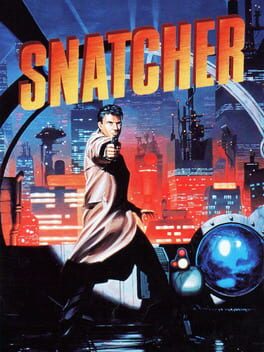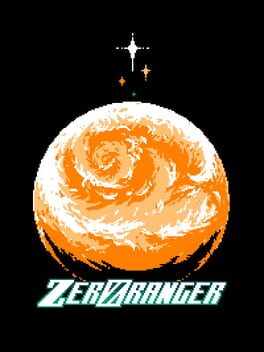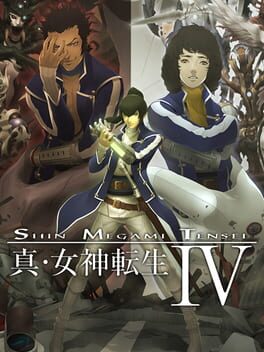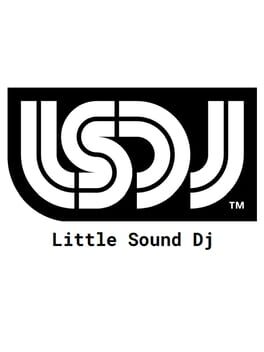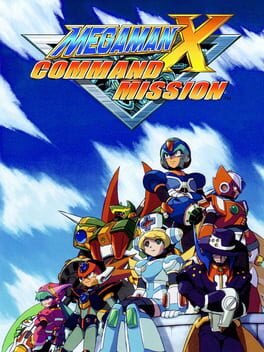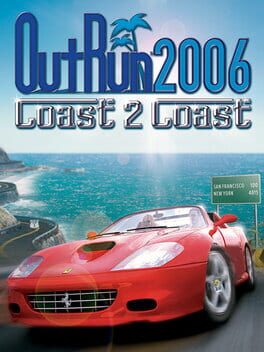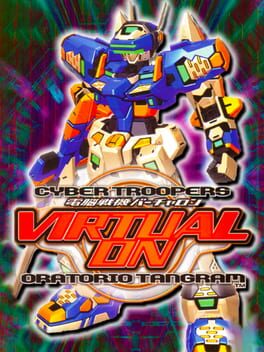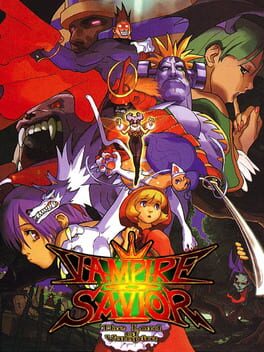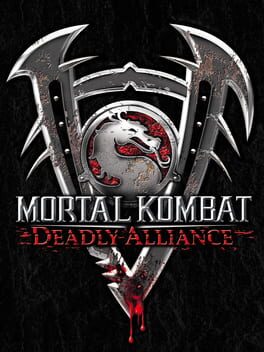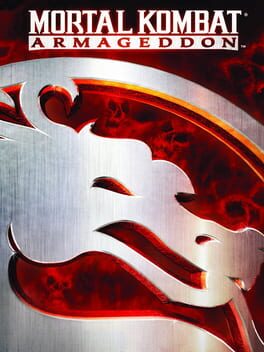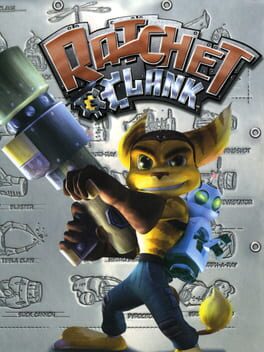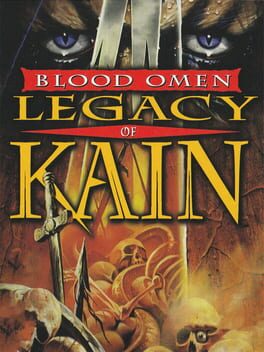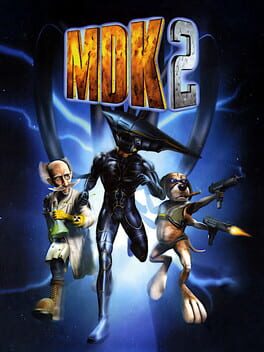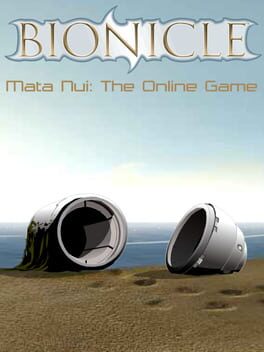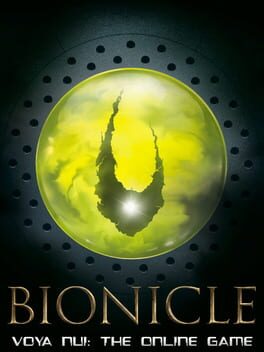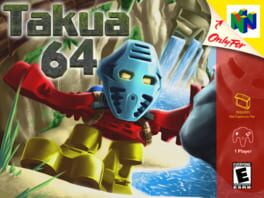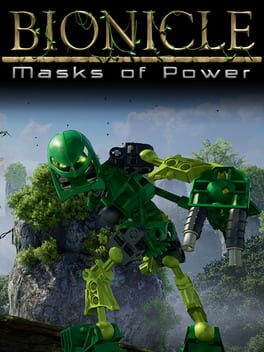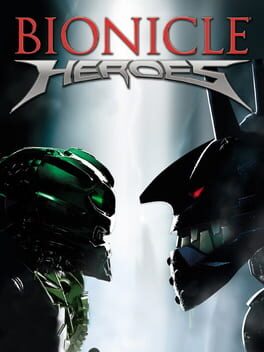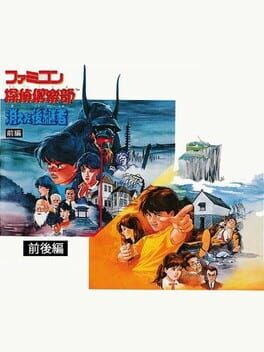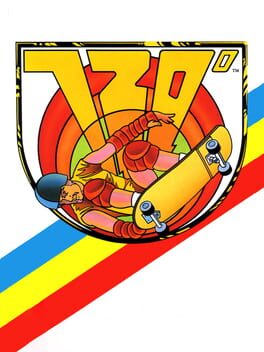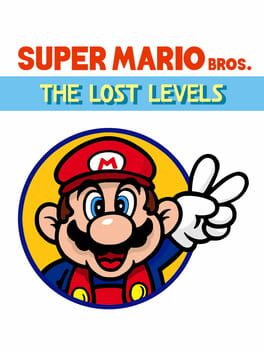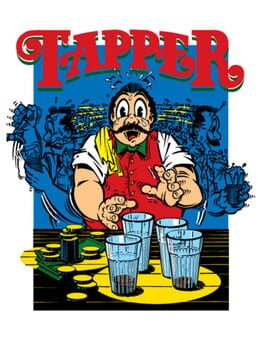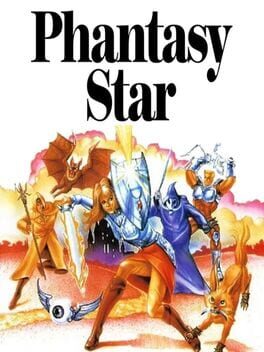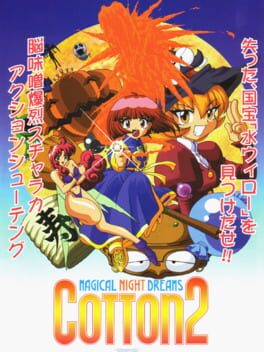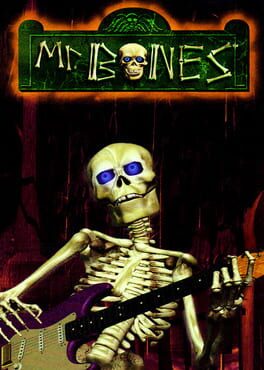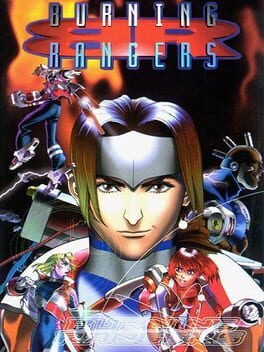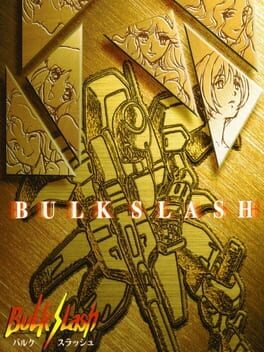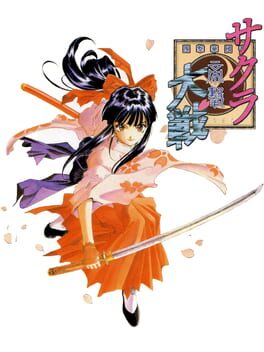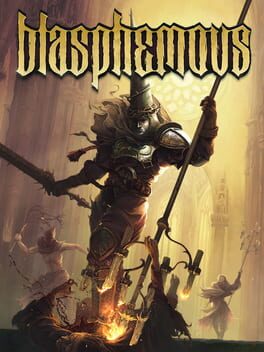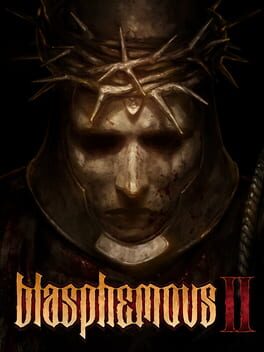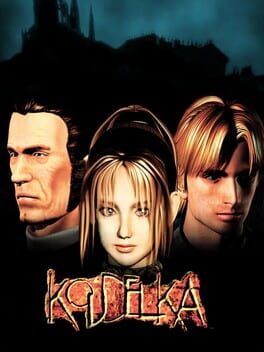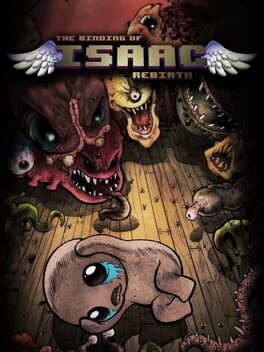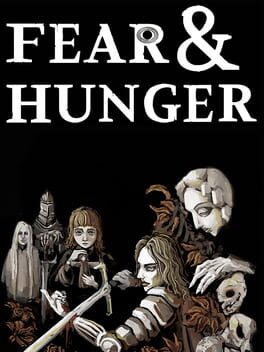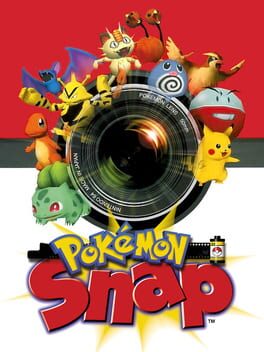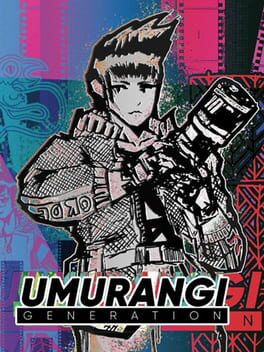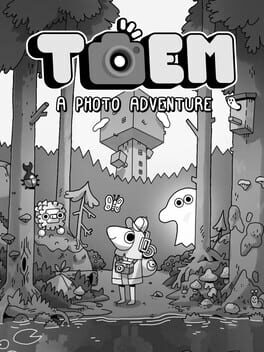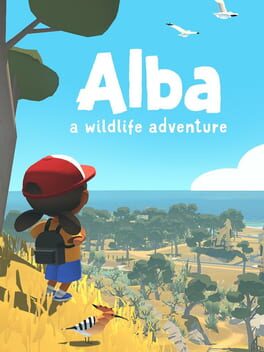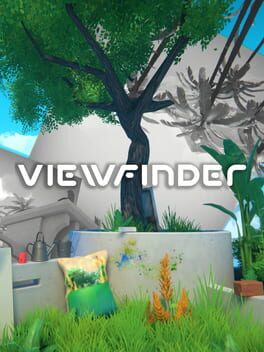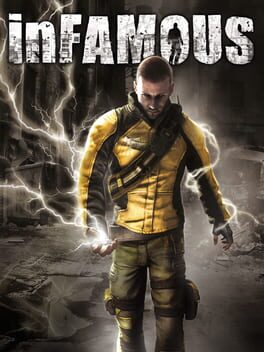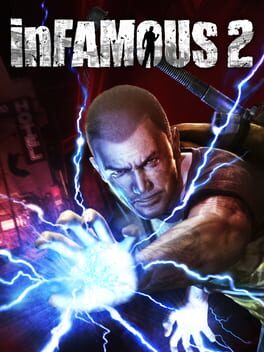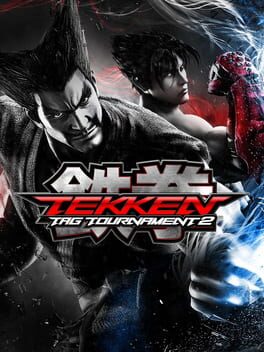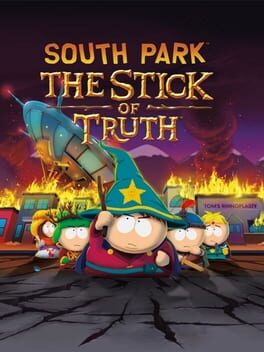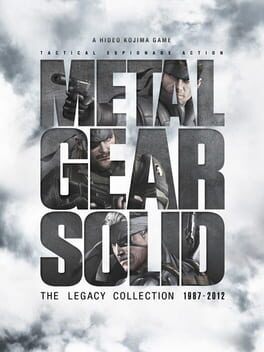DoctorQuark
148 reviews liked by DoctorQuark
Snatcher
1992
It's surprising to me that this really quite excellent cyberpunk-noir title sold so poorly outside of Japan, but I think there were two factors behind this: its potent cocktail of gore, violence, and mature themes significantly reduced the demographic of gamers who would buy it, and it seemingly is one of the first (if not the first) visual novels to be released outside of Japan, into a playerbase that is more accustomed to point-and-click adventure games.
In a way, my initial experience with this game probably mirrored that of the West in general - this might be my first visual novel, and I was baffled at first by the linearity, the lack of difficulty, and the lack of... gameplay, really. But I warmed up to it quickly enough - the genre's laserlike focus on telling a story made the experience like reading a book but with extra interactivity, and the ability to take things at my own pace. Gillian Seed, who was investigating the menace of the Snatchers (humanoid robots who kill people and take their place), could either be played as a no-nonsense straight-laced agent, or a talented goof-off who flirts with anything that moves and drinks booze on the government's dime, or anything in-between. With each new area and next stage of the investigation, I could either rush through with urgency or spend time interacting with everything and soaking up the impressive tapestry of lore, and I enjoyed the freedom that this genre afforded me. And, of course, Hideo Kojima being Hideo Kojima, the game made very clever use of the medium to pull of some clever tricks that books can't; in a very early example of this, your companion hears a faint noise and rather than outright telling you what it is, prompts you to turn the volume up so you can hear it yourself.
Of course, an interactive book is only any good if the story itself is good, and Snatcher definitely delivers on that! A lot of the plot elements seem derivative, especially today, but that doesn't take away from how well-crafted the world is, how cool some of the plot twists are, and how this story about synthetic life forms replacing people contains a heart and humanity that I associate with Kojima's best works. The pacing and storytelling is generally good too, though it suffers slightly from a need to over-recap key plot points, and several jumpscares or genuinely tense moments lose some of that thrill due to being overly-telegraphed.
This is an easy recommend to anyone - a patchwork of cinematic influences and inspirations that contains the seeds of Kojima's later work, easy enough to play to completion, both streamlined and compelling enough to never wear out its welcome.
In a way, my initial experience with this game probably mirrored that of the West in general - this might be my first visual novel, and I was baffled at first by the linearity, the lack of difficulty, and the lack of... gameplay, really. But I warmed up to it quickly enough - the genre's laserlike focus on telling a story made the experience like reading a book but with extra interactivity, and the ability to take things at my own pace. Gillian Seed, who was investigating the menace of the Snatchers (humanoid robots who kill people and take their place), could either be played as a no-nonsense straight-laced agent, or a talented goof-off who flirts with anything that moves and drinks booze on the government's dime, or anything in-between. With each new area and next stage of the investigation, I could either rush through with urgency or spend time interacting with everything and soaking up the impressive tapestry of lore, and I enjoyed the freedom that this genre afforded me. And, of course, Hideo Kojima being Hideo Kojima, the game made very clever use of the medium to pull of some clever tricks that books can't; in a very early example of this, your companion hears a faint noise and rather than outright telling you what it is, prompts you to turn the volume up so you can hear it yourself.
Of course, an interactive book is only any good if the story itself is good, and Snatcher definitely delivers on that! A lot of the plot elements seem derivative, especially today, but that doesn't take away from how well-crafted the world is, how cool some of the plot twists are, and how this story about synthetic life forms replacing people contains a heart and humanity that I associate with Kojima's best works. The pacing and storytelling is generally good too, though it suffers slightly from a need to over-recap key plot points, and several jumpscares or genuinely tense moments lose some of that thrill due to being overly-telegraphed.
This is an easy recommend to anyone - a patchwork of cinematic influences and inspirations that contains the seeds of Kojima's later work, easy enough to play to completion, both streamlined and compelling enough to never wear out its welcome.
ZeroRanger
2018
A silly little shoot 'em up game for beginners! Let's play it to s-𖣠☠⏧𝕺⃤༽░山∂ꮥꐔ꒐ꏳÌ̴̧̜͕̩̲̤̝̳͛̽ ̸̔̓̍ͅH̶̠̘͎͗̈́́̑͆͐Ḁ̸̡͖̌V̶͉̆̀̈́̓̌̆̈́́͠É̷̬̀̊́̃ ̶̨̛̛̠̞͔̥͖̍͑ͅT̵̰͈̪̯͊͋͜͜R̸̗̙̓̾̕͝A̶̛̤̲̞̜̖̜̩̰̲͋͂̔Ņ̵̳̩̝͓̤͕̊̉̏̚͜͠Ş̷̗͔̤͉̗͑̑̾́̅́̎̅͝C̶̢̨̪̼̮̫̫̈̇̓͋͒͛͑͘Ȅ̶̯̝̦͋Ṇ̵̢͖̤͓̰̔̊͐͊͐̍͘D̷̹͗͐E̷͍̗̳͔͑̀ͅD̵̗̱̠̖̳̼̣́͆̀͛͆̎͐͜ ̸͖̖͇̱̣͈͖̺̤͋̈́̐̈͋̉̇͂T̷̛̼̲̭̳̀̕͘͠H̴̞̟̟̲̰̤̰͂͆̿̈̋͝͠È̵̘̹͖̰̘̇ ̸̨̱̬̓̉̚S̶̯̖̠̟̖̾͐̌͗͜͝Ả̷̪̙̯̜̙͚͉̤͋̉̿̃̅̐Ṁ̸̧̹͗͐S̸͙͔͔̬͆̌Ả̵̛̤̲̞̟̣̭̆̆́̔̕͝R̶̨̼͔͑̆̒̐̏̽͆̚Ạ̷̮̌͒̈̎̈̍̄̊́ विश्वस्य सत्यं मम हस्ततलयोः अवलम्बते ██████████████████
This review contains spoilers
Do you know how fucked it is that you cannot legally buy the greatest turn based RPG ever made? That even the emulator to play the only platform it was released on is actually illegal and is now only fleetingly available to download on mirror websites that haven't been wiped from existence. A dizzying exchanging of a legally deemed nuclear football, all in service to prevent anyone from experiencing unique games that defy the tedium of its genre and defies limits on how brutal a game can be.
It's like the game itself achieved its own True Ending: wiping itself from existence as the cycle of death it represents is doomed to repeat infinitely.
This is the kind of shit that terrifies me about media laws and the fucked state of injustices that exist in every pocket of the legal systems that govern us. This earth shattering motherfucking CLASSIC is at the mercy of being remembered by those who jumped through the hoops to emulate it.
Nintendo is that fucking Minotaur. Beyond its watch, lies ruins of neglected software; and a underground that advances in defiance of its own imprisonment.
May the Minotaur never find and DMCA you
It's like the game itself achieved its own True Ending: wiping itself from existence as the cycle of death it represents is doomed to repeat infinitely.
This is the kind of shit that terrifies me about media laws and the fucked state of injustices that exist in every pocket of the legal systems that govern us. This earth shattering motherfucking CLASSIC is at the mercy of being remembered by those who jumped through the hoops to emulate it.
Nintendo is that fucking Minotaur. Beyond its watch, lies ruins of neglected software; and a underground that advances in defiance of its own imprisonment.
May the Minotaur never find and DMCA you
Little Sound Dj
TBD
I don't think I'm ever going to get around to finishing this game, so now's as good a time as any to do a write-up.
Breath of the Wild is my favorite game. It got me back into gaming after putting it down after a few years, and back into Nintendo games after not caring for nearly a decade. I was excited as anyone for Tears of the Kingdom. The early marketing was excellent, presenting an ominous, Majora-esque asset flip of the more melancholic BotW. I imagined deep crevices carved into the ground, exhuming all sorts of long-dormant horrors, forever altering the Hyrule with which I was familiar. I had faith that the long development time would be used to add all sorts of interesting content and well-designed dungeons.
My initial impression of the game was good. I enjoyed the tutorial island. Helping the overpacked Korok get to his friend was cute. On the surface, one of the first caves I found was the Majora tree stump cave. I remember feeling excited by the Japanese aesthetic for the shrine housing the piece of Fierce Deity armor, and wondered what other kinds of ancient architecture I'd find. Diving into The Depths for the first time was thrilling.
Disappointments, however, quickly crept in. The oddly specific over-packed Korok scenario quickly became contrived as I found dozens more. The tutorial island turned out to be the most interesting sky island by far, as the others were sparse and often copied multiple times. The tree stump cave turned out to be one of the few interesting caves, with most of the others largely using the same mossy aesthetic, with the same Horriblins and the same Japanese architecture housing the same BotW DLC armor. The Depths turned out to have a dearth of interesting content, my time largely spent stumbling around in the dark, avoiding the same enemy camps that absolutely litter the surface.
My biggest problem with TotK is how much it mindlessly copies from BotW. For BotW, the developers went back to the drawing board, and thoughtfully reconsidered all of the rote Zelda tropes that had accumulated in the series since Majora's Mask, like so many fleas. All of the pieces fit together. Take the memory system, for example. For BotW, the developers smartly crafted a smattering of nonessential vignettes, where the order in which you found them was not important, because it suited the open world structure of the game. Anyone with a brain can see that this structure does not fit the essential, linear story that TotK wants to tell. It felt like watching a movie with its scenes out of order. It also leads to big problems like Link spending all his time "trying to find Zelda," when he already knows exactly where she is, but doesn't bother letting anyone else know.
No one held a gun to Aonuma's head and said he had to use the same damn Korok seed inventory system, or shrine health and stamina system, or combat durability system, or memory-based narrative, or music. BotW was great in part because of how new everything felt. But Aonuma's team is already resting on its laurels, and I fear BotW's revolutionary template is already ossified convention.
The worst is how TotK handles BotW's map. Many previous points of interest are utterly devoid of content, including Thundra Plateau, Gut Check Rock, Hyrule Castle Ruins, and The Forgotten Temple. Areas with affecting environmental storytelling in BotW like Fort Hateno are downgraded to dumps littered with ugly brown-gray sky island slabs. I was baffled and offended when I made my way to Akkala Citadel, only to find an inexplicably generic monster cave where the citadel entrance should have been exposed. They really should have made sure there was enough to do on the surface before bothering with the dull-as-dishwater Depths.
Speaking of environmental storytelling, how bad is TotK's? What's the point of introducing another heretofore unmentioned technologically advanced ancient civilization? What happened to the Shiekah tech from BotW, including the army of laser-spewing spider robots and Divine Beasts that devastated the countryside for 100 years? I don't think they're even mentioned once. It almost feels like The Calamity didn't even happen. This created a huge disconnect from the world for me. All the ruins that felt so meaningful to explore in BotW felt like they belonged in a different game in TotK.
I haven't mentioned Ultrahand until now, because it felt largely superfluous to my experience with the game. On the tutorial island, I learned to my great disappointment that walking more than 50 yards from a boat I'd built to cross the first lake caused it to despawn. I was further let down after my first exhilarating flight on a wing part was cut short by the extremely stingy 30-second use time limit.
Ultrahand is barely integrated into the game. It feels like someone took the building mechanic from Garry's Mod, shoved it into BotW, and dumped a bunch of Lego parts everywhere. The game almost never requires its use outside of scripted events like the Death Mountain approach or boring green crystal sky island shrines; it's often faster and more effective to deal with the game's many enemies using the vanilla BotW combat.
So many elements of the game disincentivize its use. The building mechanic itself is finicky and time-consuming, and the distance and time limits are even more demoralizing. I was lucky to find auto-build early in the game, but the heavy Zonaite cost kept me from using it much. Maybe it wouldn't have mattered if going in to The Depths was fun, but mindlessly mining Zonaite felt like the worst kind of grindy MMO filler. I think the biggest tell is how many people complained when Nintendo removed the duplication glitch from the first build of the game. I normally side with Nintendo in these instances, but here, I think it exposes just how unfun and stingy the game is with resources.
I'm just scratching the surface of TotK's serious flaws. The "dungeons" are lackluster, and their "press these 5 or so buttons in any order" design uninspired. The repetitive sage cutscenes after the fairly enjoyable but too-easy boss fights are pathetic. Shrines are often just tutorials for Zonai parts, and can often be cheesed in unsatisfying ways. Sage powers are horribly implemented.
I'll balance all the negativity I just wrote by saying that I recognize that TotK isn't a bad game. If I hadn't played BotW, I'm sure I would have enjoyed it more. Maybe my expectations for the sequel of my favorite game were too high. And there are truly excellent moments that incentivized me to push through all the middling content, like launching off the roofs of sky ships into the eye of a snow storm, or exploring the super interesting Gerudo underground shelter, or fighting a Boss Bokoblin squad for the first time. But I can't deny that I resented most of the 100+ hour grind I put into this game, and I regret ever buying it.
Breath of the Wild is my favorite game. It got me back into gaming after putting it down after a few years, and back into Nintendo games after not caring for nearly a decade. I was excited as anyone for Tears of the Kingdom. The early marketing was excellent, presenting an ominous, Majora-esque asset flip of the more melancholic BotW. I imagined deep crevices carved into the ground, exhuming all sorts of long-dormant horrors, forever altering the Hyrule with which I was familiar. I had faith that the long development time would be used to add all sorts of interesting content and well-designed dungeons.
My initial impression of the game was good. I enjoyed the tutorial island. Helping the overpacked Korok get to his friend was cute. On the surface, one of the first caves I found was the Majora tree stump cave. I remember feeling excited by the Japanese aesthetic for the shrine housing the piece of Fierce Deity armor, and wondered what other kinds of ancient architecture I'd find. Diving into The Depths for the first time was thrilling.
Disappointments, however, quickly crept in. The oddly specific over-packed Korok scenario quickly became contrived as I found dozens more. The tutorial island turned out to be the most interesting sky island by far, as the others were sparse and often copied multiple times. The tree stump cave turned out to be one of the few interesting caves, with most of the others largely using the same mossy aesthetic, with the same Horriblins and the same Japanese architecture housing the same BotW DLC armor. The Depths turned out to have a dearth of interesting content, my time largely spent stumbling around in the dark, avoiding the same enemy camps that absolutely litter the surface.
My biggest problem with TotK is how much it mindlessly copies from BotW. For BotW, the developers went back to the drawing board, and thoughtfully reconsidered all of the rote Zelda tropes that had accumulated in the series since Majora's Mask, like so many fleas. All of the pieces fit together. Take the memory system, for example. For BotW, the developers smartly crafted a smattering of nonessential vignettes, where the order in which you found them was not important, because it suited the open world structure of the game. Anyone with a brain can see that this structure does not fit the essential, linear story that TotK wants to tell. It felt like watching a movie with its scenes out of order. It also leads to big problems like Link spending all his time "trying to find Zelda," when he already knows exactly where she is, but doesn't bother letting anyone else know.
No one held a gun to Aonuma's head and said he had to use the same damn Korok seed inventory system, or shrine health and stamina system, or combat durability system, or memory-based narrative, or music. BotW was great in part because of how new everything felt. But Aonuma's team is already resting on its laurels, and I fear BotW's revolutionary template is already ossified convention.
The worst is how TotK handles BotW's map. Many previous points of interest are utterly devoid of content, including Thundra Plateau, Gut Check Rock, Hyrule Castle Ruins, and The Forgotten Temple. Areas with affecting environmental storytelling in BotW like Fort Hateno are downgraded to dumps littered with ugly brown-gray sky island slabs. I was baffled and offended when I made my way to Akkala Citadel, only to find an inexplicably generic monster cave where the citadel entrance should have been exposed. They really should have made sure there was enough to do on the surface before bothering with the dull-as-dishwater Depths.
Speaking of environmental storytelling, how bad is TotK's? What's the point of introducing another heretofore unmentioned technologically advanced ancient civilization? What happened to the Shiekah tech from BotW, including the army of laser-spewing spider robots and Divine Beasts that devastated the countryside for 100 years? I don't think they're even mentioned once. It almost feels like The Calamity didn't even happen. This created a huge disconnect from the world for me. All the ruins that felt so meaningful to explore in BotW felt like they belonged in a different game in TotK.
I haven't mentioned Ultrahand until now, because it felt largely superfluous to my experience with the game. On the tutorial island, I learned to my great disappointment that walking more than 50 yards from a boat I'd built to cross the first lake caused it to despawn. I was further let down after my first exhilarating flight on a wing part was cut short by the extremely stingy 30-second use time limit.
Ultrahand is barely integrated into the game. It feels like someone took the building mechanic from Garry's Mod, shoved it into BotW, and dumped a bunch of Lego parts everywhere. The game almost never requires its use outside of scripted events like the Death Mountain approach or boring green crystal sky island shrines; it's often faster and more effective to deal with the game's many enemies using the vanilla BotW combat.
So many elements of the game disincentivize its use. The building mechanic itself is finicky and time-consuming, and the distance and time limits are even more demoralizing. I was lucky to find auto-build early in the game, but the heavy Zonaite cost kept me from using it much. Maybe it wouldn't have mattered if going in to The Depths was fun, but mindlessly mining Zonaite felt like the worst kind of grindy MMO filler. I think the biggest tell is how many people complained when Nintendo removed the duplication glitch from the first build of the game. I normally side with Nintendo in these instances, but here, I think it exposes just how unfun and stingy the game is with resources.
I'm just scratching the surface of TotK's serious flaws. The "dungeons" are lackluster, and their "press these 5 or so buttons in any order" design uninspired. The repetitive sage cutscenes after the fairly enjoyable but too-easy boss fights are pathetic. Shrines are often just tutorials for Zonai parts, and can often be cheesed in unsatisfying ways. Sage powers are horribly implemented.
I'll balance all the negativity I just wrote by saying that I recognize that TotK isn't a bad game. If I hadn't played BotW, I'm sure I would have enjoyed it more. Maybe my expectations for the sequel of my favorite game were too high. And there are truly excellent moments that incentivized me to push through all the middling content, like launching off the roofs of sky ships into the eye of a snow storm, or exploring the super interesting Gerudo underground shelter, or fighting a Boss Bokoblin squad for the first time. But I can't deny that I resented most of the 100+ hour grind I put into this game, and I regret ever buying it.
Resident Evil 4
2005
"They always feel new - constant, but constantly surprising. They become part of your private autobiography and every time you [play] them a new layer of memory is added to the bond between you. Each performance is a collection of the experiences you have had together. Not many friendships last so long - I suppose the unchanging nature of the music simplifies the dynamic between you - but what would be an unhealthily one-sided affair in your personal life provides a great deal of comfort throughout your professional one. It is even richer if you can always remember the initial naivety, wonder, and thrill that accompanied your first 'date'."
This is a quote from an orchestral conductor about his evolving relationship with great pieces of classical music, but I suspect it's pretty easy for many of us to substitute a couple of words and apply it directly to our experiences with our favorite games. And in the case of RE4 it was a first date to remember.
It was the late spring of 2005, my friend had just bought the game, eight of us crammed into his dorm room at midnight, turned the lights out and the volume up as we played through the first 3 chapters more or less blind. The idea was that we'd pass the controller around whenever the player died, but the first guy somehow stayed alive all the way until chapter 3-2! Us seven spectators had one of the most intense watch-sessions ever, alternating between "AHHHH!" and "EWWWW" and "LOLOL Chuck Norris roundhouse kicks".
Two years later, I bought the Wii version - now I could shoot a Ganado in the leg and then in the face a split second later! It was so damn addictive that I completed the game (for the first time) in one single 16-hour sitting. A friend picked me up to go to a party right after, and I spent the entire time in a hazy half-asleep stupor hovering between RE4 and reality. And while I don't remember this, he said (while laughing his ass off) that at one point I stood in front of a vase and swiped my right arm back and forth in the "break vase" Wiimote gesture for a few seconds.
I've returned to Resident Evil 4 at so many different seasons of my life - playing quick rounds of Mercenaries mode with a warm bottle of milk in my lap waiting for my infant daughter to start fussing, doing a handgun-only pro run when COVID lockdowns first started - that it has to be a five-star game for me. It's not just that I have plenty of memories of it; it's that the game was addictive and fantastic enough that I kept coming back to it to make those memories in the first place, and that's something that no amount of plot contrivances or anticlimactic final acts can take away from it.
Plenty of reviews have waxed lyrical on this game's virtues better than I can, but I wanted to point out how impressed I am with how the iconic village brawl really teaches the new player how to play the game. It establishes from the outset that unlike the zombies from previous games, these guys are capable of running, moving intelligently to flank you, and following you up stairs and through windows. And through a mix of its large enemy swarms, the presence of sloping terrain which means that you will eventually hit an enemy in the face even if you just spray and pray, and the fact that enemies sometimes stagger forwards when hit in the face, and you've created the conditions for even a complete newbie to discover the melee options by accident. And the melee options are part of the extraordinarily robust but viscerally simple gameplay loop that has sustained my interest in this game through countless playthroughs.
I know that this represents the start of the shift away from survival horror that culminated in the all-action RE6 (that's a review I'm kinda dreading to get to) - but taken as it is it's a blockbuster in all the right ways. It looks and sounds fantastic even today, is exceptionally refined in execution, is a bundle of scares on the first run and then unadulterated fun on subsequent playthroughs, and... it's just good, man. Play it!
This is a quote from an orchestral conductor about his evolving relationship with great pieces of classical music, but I suspect it's pretty easy for many of us to substitute a couple of words and apply it directly to our experiences with our favorite games. And in the case of RE4 it was a first date to remember.
It was the late spring of 2005, my friend had just bought the game, eight of us crammed into his dorm room at midnight, turned the lights out and the volume up as we played through the first 3 chapters more or less blind. The idea was that we'd pass the controller around whenever the player died, but the first guy somehow stayed alive all the way until chapter 3-2! Us seven spectators had one of the most intense watch-sessions ever, alternating between "AHHHH!" and "EWWWW" and "LOLOL Chuck Norris roundhouse kicks".
Two years later, I bought the Wii version - now I could shoot a Ganado in the leg and then in the face a split second later! It was so damn addictive that I completed the game (for the first time) in one single 16-hour sitting. A friend picked me up to go to a party right after, and I spent the entire time in a hazy half-asleep stupor hovering between RE4 and reality. And while I don't remember this, he said (while laughing his ass off) that at one point I stood in front of a vase and swiped my right arm back and forth in the "break vase" Wiimote gesture for a few seconds.
I've returned to Resident Evil 4 at so many different seasons of my life - playing quick rounds of Mercenaries mode with a warm bottle of milk in my lap waiting for my infant daughter to start fussing, doing a handgun-only pro run when COVID lockdowns first started - that it has to be a five-star game for me. It's not just that I have plenty of memories of it; it's that the game was addictive and fantastic enough that I kept coming back to it to make those memories in the first place, and that's something that no amount of plot contrivances or anticlimactic final acts can take away from it.
Plenty of reviews have waxed lyrical on this game's virtues better than I can, but I wanted to point out how impressed I am with how the iconic village brawl really teaches the new player how to play the game. It establishes from the outset that unlike the zombies from previous games, these guys are capable of running, moving intelligently to flank you, and following you up stairs and through windows. And through a mix of its large enemy swarms, the presence of sloping terrain which means that you will eventually hit an enemy in the face even if you just spray and pray, and the fact that enemies sometimes stagger forwards when hit in the face, and you've created the conditions for even a complete newbie to discover the melee options by accident. And the melee options are part of the extraordinarily robust but viscerally simple gameplay loop that has sustained my interest in this game through countless playthroughs.
I know that this represents the start of the shift away from survival horror that culminated in the all-action RE6 (that's a review I'm kinda dreading to get to) - but taken as it is it's a blockbuster in all the right ways. It looks and sounds fantastic even today, is exceptionally refined in execution, is a bundle of scares on the first run and then unadulterated fun on subsequent playthroughs, and... it's just good, man. Play it!
7 lists liked by DoctorQuark
by imshitting420 |
42 Games
by Nilichi |
10 Games
by Dalaamclouds |
143 Games
by imshitting420 |
16 Games
by DeviMetric |
46 Games
by NoJoTo |
19 Games
by imshitting420 |
10 Games
